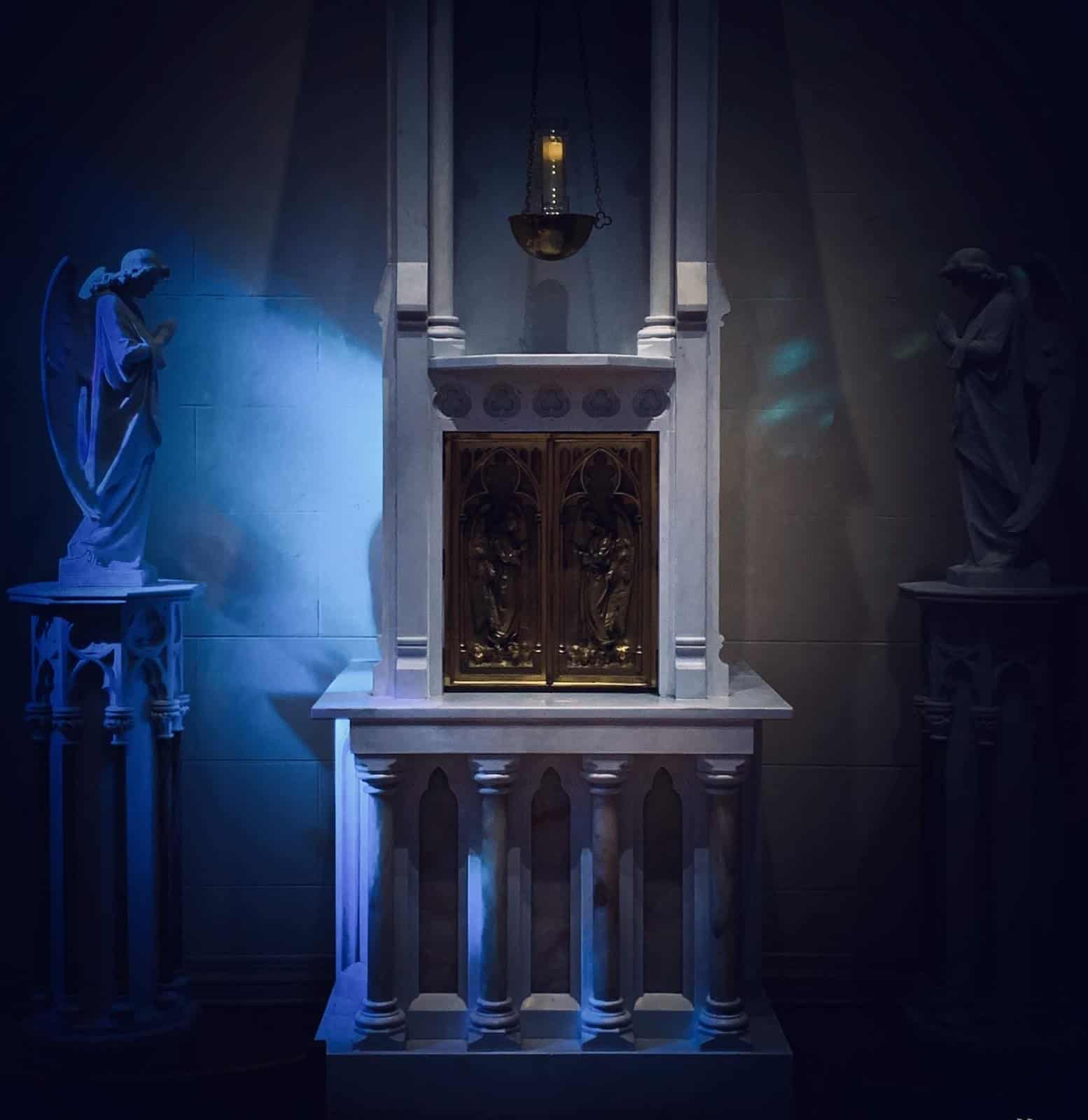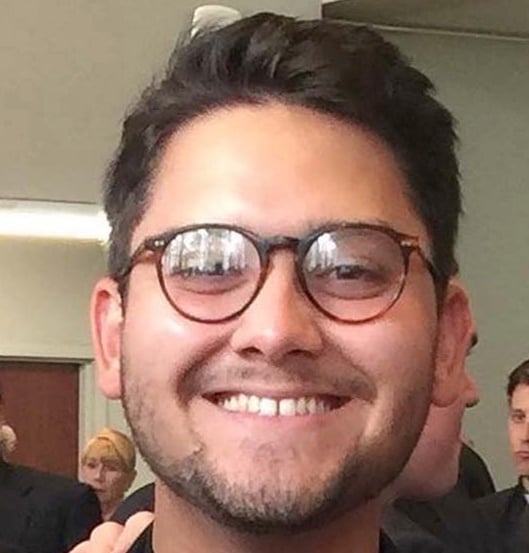The Catholic hierarchy is cooperating with civil mandates to protect and save lives from a global pandemic. In a rare moment in the history of Christianity, Churches are closed and the sacraments are not being given out on a large scale.
Some are posting online that they are sad and confused at the cancellation of masses and closing of churches. Some believe bishops made the wrong decision. Some defend the bishops’ decision. And some are indifferent.
Rather than make any claims in favor of or against the decisions of cardinals, bishops, and priests (not to mention politicians, public health officials, and epidemiologists), I want to bring to light something significant for our reflection.
We Catholics often forget how incredibly strange we are.
At the risk of making our religion commonplace, we continue to practice it as if it were normal to believe that God—the Creator, Savior, and Life of the Universe—becomes a piece of bread and a bit of wine.
As an example, I invite you to read this next sentence as if it were the first time you had ever heard of Catholicism, as if this list of information was all fresh without any context:
Catholics gather in a public space, kneel before a sacrifice made on an altar, worship and consume consecrated bread and wine which they believe to be the Flesh and Blood of a first century Palestinian Jew named Jesus, and dialogue with a priest in order to converse directly with God. They believe that this is all to let God work in their soul in order to save it.
This is anything but normal. And the moment this sort of cultic-worship becomes commonplace is the moment we lose any sense of the wild nature of religion.
Losing that sense is like falling out of love with a spouse. When spouses first fall in love, they’re often overwhelmed and surprised by each other. New love puts them in a state of constant awe and wonder. But when the love they share becomes commonplace, they can lose sight of the wonderful person they fell in love with at first. This same crisis can happen with our religion.
The good news is that a crisis can be the test of true love. And we are in a crisis.
I think many Catholics are upset that they can’t receive the sacraments because they are in love. Many Catholics are confused and conflicted because they want people to gather for Mass and other sacraments but can’t because it would risk disease and death.
This tension in their hearts arises because they are in love with their religion and the truth it captures. When this love is unbridled, it can naturally rival the good sense of doing what the secular world can empirically show is best.
As a vowed religious, I can’t help but sympathize. The religious life is built upon such strange love from its beginning.
On the day I took perpetual vows as a Jesuit, I knelt at the foot of an altar with eleven other novices. The Jesuit superior held the Body and Blood of Jesus in front of my face. Trembling, I looked up and spoke my new name. I confessed Jesus and his infinite and merciful love. I then professed the three vows of poverty, chastity, and obedience. In doing so, I told Jesus in the Host and Chalice that I was making my entire life an offering to Him.
By all accounts, the twelve of us publicly knelt and spoke to what appeared to be a lifeless wafer and a gold cup of wine before consuming them.
We dove headlong into our religion—as if life depended on it, as if life itself was in it.
Since many church doors have been closed to laity and the sacraments are not available, it can appear as if the Catholic Church has stopped doing what it loves most, what gives it its very life.
But there is a deeper reality quietly at work in the Church, one which has carried it through great trials before. Hundreds of thousands of religious brothers, sisters and priests are still celebrating Mass and receiving the sacraments on behalf of the whole world.
As the religious theologian Fr. Elio Gambari, SMM writes:
“In the person taking the vows, the Church offers herself to Jesus…In a certain sense, at profession we cease to be ourselves and become the Church. Our personality is not diminished by this fusion with the Church, but our ‘I’ is stamped with the ‘I’ of the Church.”
When we religious go to God in all of our liturgical and personal prayer, we bring all of humanity with us and offer all of creation back to God Who made it and died to save it. We pray the Psalms and call down the Holy Spirit across the face of the earth from sunrise to sunset. We continue to enter into union with God on behalf of everyone who cannot receive the Body and Blood of Jesus and yearn to join Him.
And we do this every day, as we have always done and will do until the end of time. This is something which we have decided we all cannot live without. This is something wild and strange we do because we know the Church is still deeply in love.


